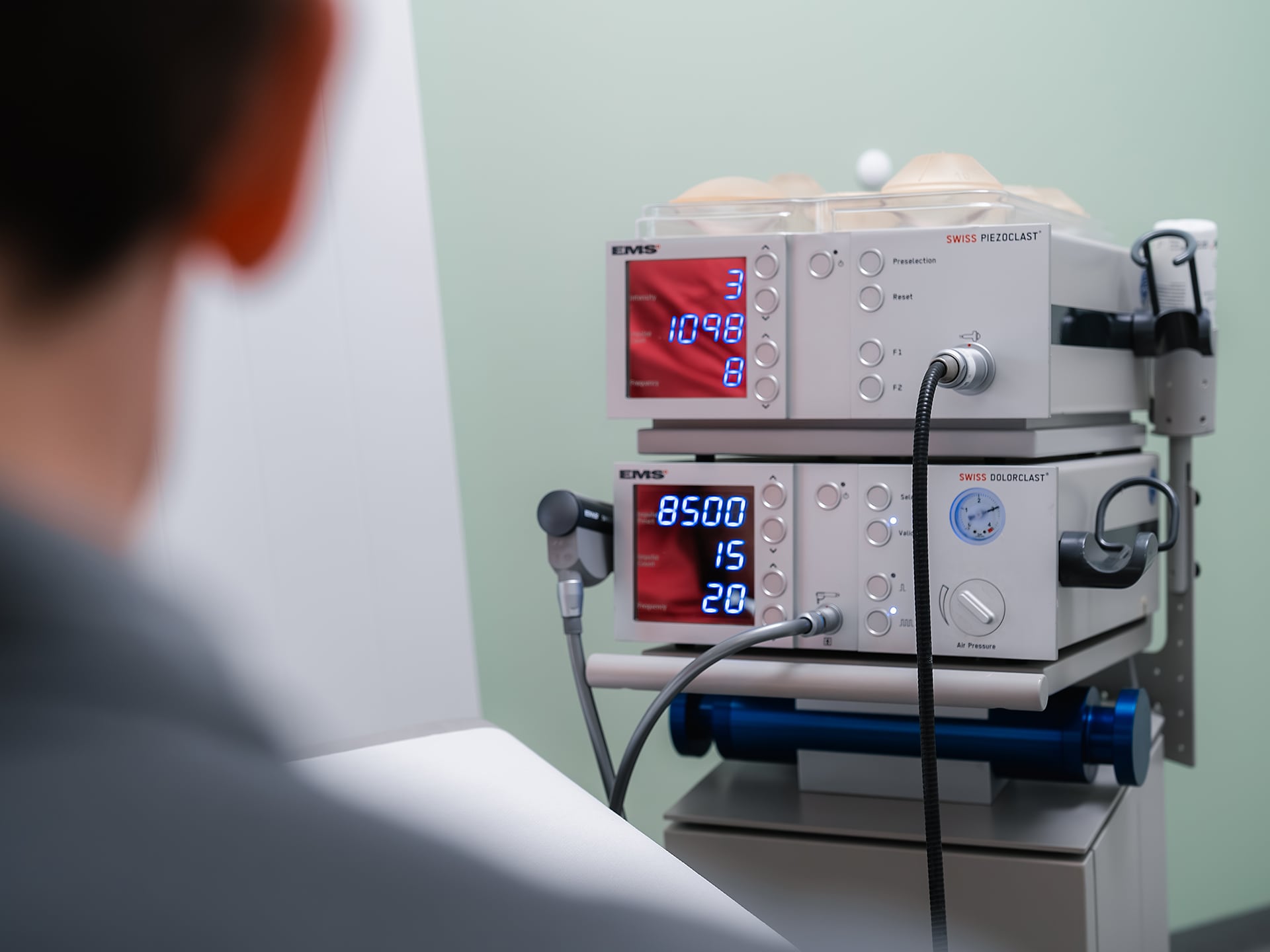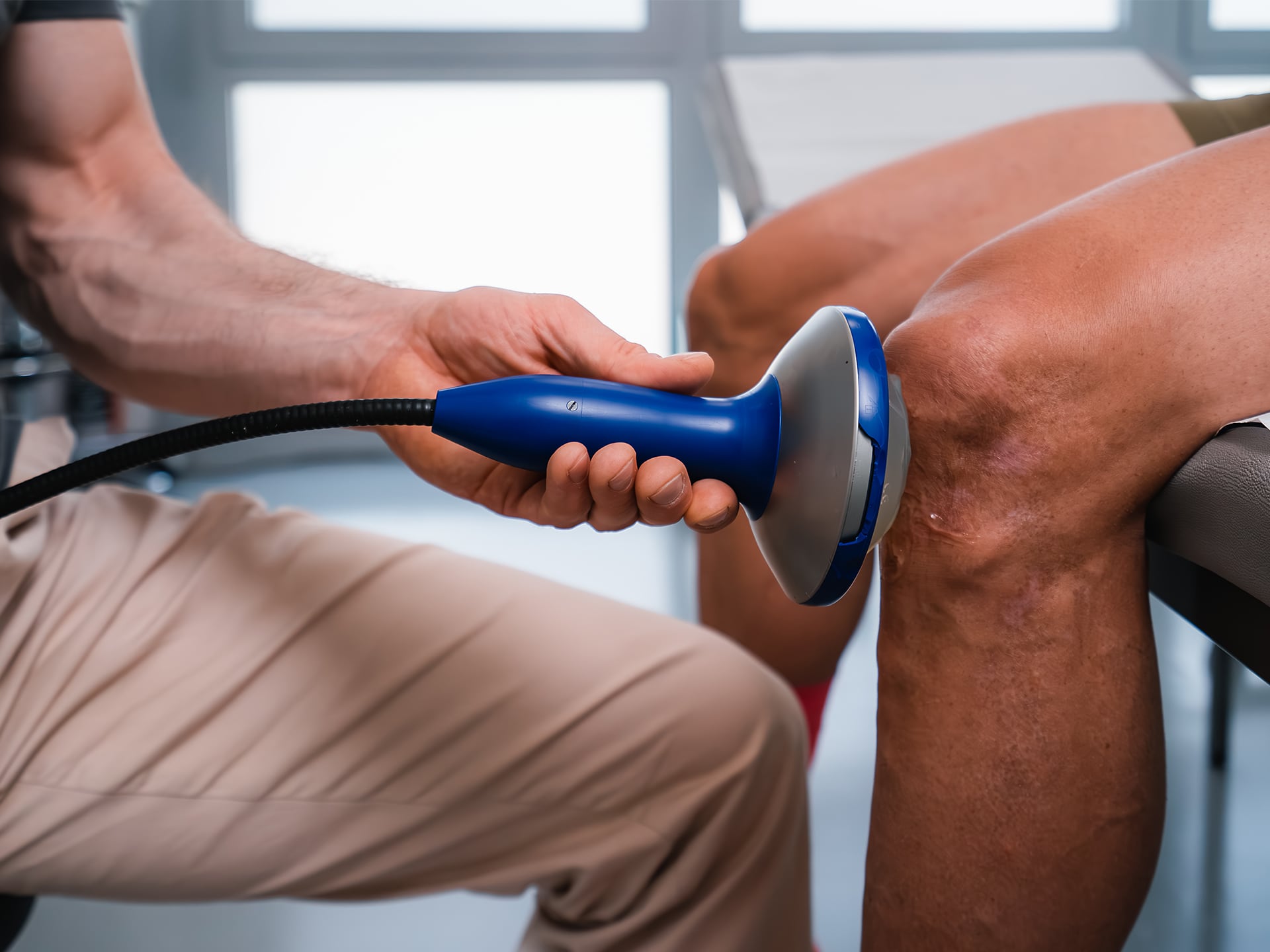Definition
Extracorporeal shock wave therapy, or ESWT for short, represented an effective and gentle treatment method for a variety of internal and orthopedic diseases. It is often an alternative to surgery .

Mode of action
Shock wave therapy has the following effects on the body:
- Stimulation of regeneration processes
- Improvement of blood circulation
- Improvement of bone healing
- Pain relief
- Dissolution of stone or lime deposits
Shock wave therapy uses a special device to direct sound waves specifically at the area of the body to be treated. In addition to regeneration processes, shock wave therapy also triggers numerous other processes in the body.
Areas of application
Shock wave therapy is used for the following orthopedic conditions, among others:
- Shoulder joint: Calcareous shoulder (Tendinitis calcarea), shoulder impingement syndrome (impingement)
- Elbow joint: tennis elbow and golfer's elbow
- Hip joint: bursitis (bursitis trochanterica)
- Knee joint: patellar tendinitis, Runner's knee (Tractus-iliotibialis syndrome), Osgood-Schlatter disease, Sinding-Larson-Johansson disease
- Foot and ankle: Achillodynia, heel spur
- Non-healing or poorly healing bone fractures (pseudoarthroses)
Originally, shock wave therapy was used in the context of kidney stone disease, as kidney stones can be shattered by the sound waves from the outside. In recent decades, the effectiveness of shock waves has been discovered in orthopedic diseases.
Treatment process
Shock wave therapy takes place on an outpatient basis and without anesthesia. One session lasts between 10 and 20 minutes, depending on the clinical picture; several sessions may be necessary. The shock wave therapy device is placed on the area to be treated, and the sound waves are clearly audible. If the pain is severe, the examiner may apply a local anesthetic to the area to be treated. However, this is rarely necessary.

Side effects
Possible side effects may include:
- Pain
- Reddening of the skin in the treated area
- Bruise on the treated area
Shock wave therapy is a treatment option with very few side effects. If pain occurs after treatment, painkillers from the group of non-steroidal anti-inflammatory drugs (NSAIDs) can be taken.
